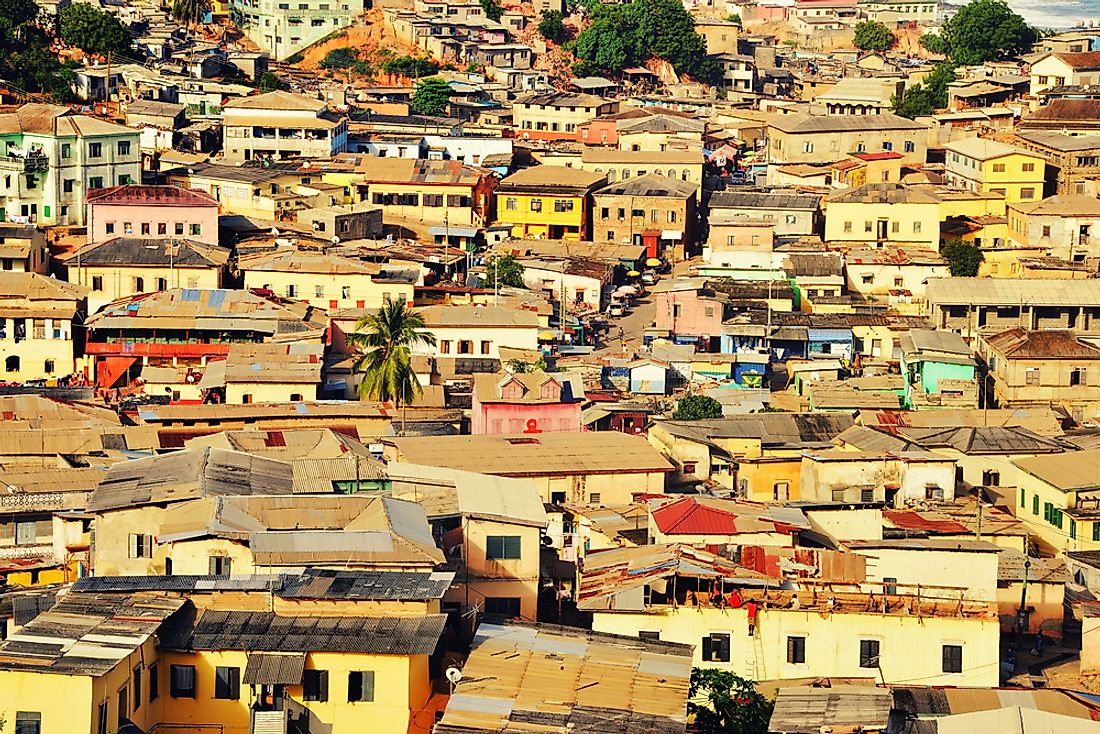What Languages Are Spoken In Ghana?

Ghana is a West African state which is situated along the Gulf of Guinea. The name Ghana means “Warrior King” in Soninke language. It is known for its diverse wildlife, secluded beaches, and old forts. The capital city of Ghana is Accra. Ghana covers an area of 238,535 km2. In 2016, World Bank estimated the population of Ghana as 28.21 million. Ghana is a multilingual nation. It is believed that there are about 80 native languages spoken by the Ghanaians. However, the official language used in Ghana is English.
The Official Language Of Ghana
English is the official language used in Ghana. It was passed on to the Ghanaians by their British colonialists. English is predominantly used for government and business affairs. It is used in legal and administrative documents and procedures. Besides, English is also used in Ghanaian politics and media coverage. Examples of newspapers which are written in English include the “Daily Guide Ghana” and the “Ghanaian Chronicle.” Additionally, it is used by Ghana’s education sector as a language of instruction. English is also one of the subjects taken by students in the Ghanaian schools. The English spoken by the locals is not as fluent as a native speaker’s English. It is mostly influenced by the indigenous languages’ idioms, phrases, and grammatical rules. It is therefore common to hear the English being referred to as Pidgin English.
The Indigenous Languages Of Ghana
The major ethnic groups in Ghana are Akans, Dagbani, Ewe, Ga-Adangbe, Gurma, Fulani, Guan, Gurunsi, and Bissa/Mande. Akans is the largest ethnic group as it comprises of 47.5% of the Ghanaian population. The languages in Ghana are categorized into two groups: government-sponsored and non-government sponsored languages. The languages which are sponsored by government are supported by the Bureau of Ghana languages. In addition, materials such as books used to teach students in first grade, can only be published in these languages. There are nine languages which are sponsored by the government. These languages are Akan languages (Twi languages), Dagaare, Dangbe, Dagbane, Ga, Kasem, Ewe, and Nzema. Those languages which are not sponsored by the government include Bimoba, Bassari, Anufo, Adele, and Sisaala among others.
Different languages are spoken in different regions of Ghana. In Upper Western Region, the languages spoken include Gagaare, Birifor, and Sisaala. Ghanaians who live in the Northern Region speak Dagbane, Gonja, Anufo/Chokosi, Mampruli, Mo, Deg, Nawuri, Chumburung, Birifor, Hanga, Konkomba, and Tampulma among other languages. In the Volta Regions of Ghana, the languages spoken are Akyode, Nkonya, Adele, Ntrubo, and Ewe. Kasem, Buli, Frafra, Kusaal, Kasem, and Koma are spoken by people who live in the Upper Eastern Region of Ghana. The people who live in the Greater Accra Region speak Ga and Dangbe. On the other hand, those who live in the Western Region speak Nzema.
The most widely spoken native language in Ghana is Akan. Though the languages are many, they are mutually intelligible if they belong to the same ethnic group. For example the Mampelle and Frafra languages are mutually intelligible since they belong to the same ethnic group called Mole-Dagbani.
Hence, being a multilingual nation, the official language is a unifying factor. It has made communication amongst people who speak different native languages easier.











